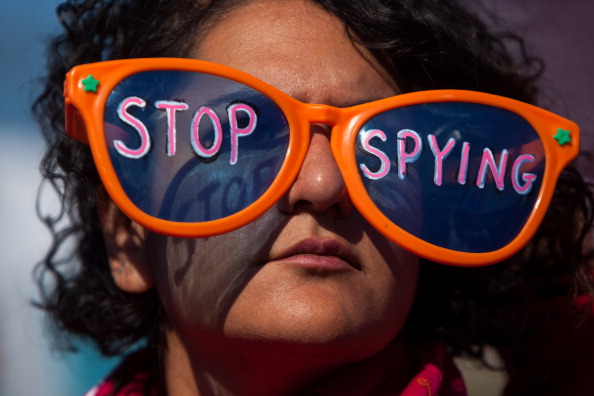
Mass surveillance is not only a violation of our rights to privacy. It is a threat to Amnesty International’s research and global activism.
Amnesty reports on human rights violations worldwide. Our researches rely on confidential sources – witnesses and victims of human rights violations who put themselves at risk by sharing their stories. Our worst fear is that our sources are exposed, and that they, as well as their loved ones, could face retaliation.
Mass surveillance is a threat to our activism. Communications between our sources and researchers, and between our researchers and activists, are collected by governments. They can be used to commit more human rights violations, with governments using communications to identify, track and even retaliate against dissidents and human rights defenders because they spoke to Amnesty or because of their activism.
Unfortunately, the United States is no exception when it comes to mass surveillance – in fact, it’s a leader. The National Security Agency (NSA) is conducting mass surveillance on communications by tapping into transnational internet cables – the physical “backbone” of the internet. This is called Upstream surveillance.
That is why Amnesty International USA, along with eight other groups and represented by the ACLU, is suing the NSA in a lawsuit called Wikimedia v. Clapper. (We also previously challenged NSA surveillance in a lawsuit called Amnesty v. Clapper, represented by the ACLU)
In late October, a U.S. district court dismissed our suit on the grounds that we lacked standing, i.e., the right to challenge the government’s action in court. Effectively, the court’s reasoning is that because Amnesty International USA and the other groups cannot prove we are under surveillance, we can’t sue. But as the ACLU has explained, “given the structure of the Internet, it is virtually impossible for the NSA to conduct upstream surveillance without intercepting [AIUSA and other groups’] communications.”
Meanwhile, the government is holding back facts about the scale of surveillance that might actually satisfy the court. We are left with a justice system that is essentially letting government secrecy rule the day.
We’ll keep fighting in court, but we aren’t going to wait for a court to tell us what we already know. Mass surveillance is unlawful, and it is a threat to our research and activism. We will continue fighting to end it. Here’s what we can do:
- Protect our own privacy. Encryption works. Signal is an easy-to-use app for private texting and phone calls. Encrypt your communications. Secure your web browsing. Lengthen your passwords. Host a party where you help others activists protect themselves.
- Mass surveillance is a problem for everyone, even if you don’t have anything to hide. Surveillance has been used to target activists or religious minorities. It results in a climate of fear, where people worry that their email or phone calls could endanger themselves or anyone with whom they communicate.
- Take action. Start in your community, or school. Write letters and send petitions to school and government officials. Ask them to oppose unlawful monitoring in their schools or communities, particularly the surveillance of activists and racial and religious minorities.
Don’t wait for the courts to decide. Our new #Unfollowme toolkit has the tools you need to educate, empower and take action. For more information, visit AIUSA’s Security With Human Rights campaign.
